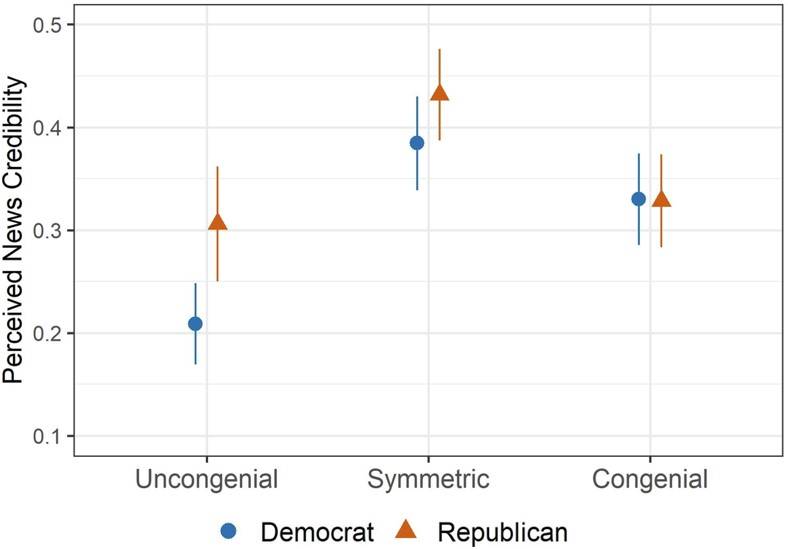The following work was presented at the 2022 Annual Meeting of the American Political Association (APSA). The presentation entitled “Building Bipartisan Trust in Fact-Checking Sites: The Effects of Asymmetric Coverage on Source Credibility” by Hwayong Shin was a part of the session “Trust and Distrust toward News” on Saturday, September 17, 2022. This research was supported by the 2022 Garth Taylor Fellowship in Public Opinion. The post was developed by Hwayong Shin and edited by CPS staff.

A major challenge confronting our society is the intensity of partisan disagreements, even about what constitutes fact. To address this challenge, fact-checking was initiated by organizations such as FactCheck.org and PolitiFact in the 2000s to assess the accuracy of political claims. For fact-checking journalism to be helpful, there should be widespread public trust in such websites. Yet about half of Americans believe fact-checkers are biased.
Two decades after its emergence, why has fact-checking failed to get traction among the public? What changes can help fact-checking sites earn greater trust?
Research shows that FactCheck.org, PolitiFact, and Washington Post Fact Checker in recent years often corrected Republicans at a greater rate than Democrats. These asymmetries indicate a specific way in which fact-checkers pursue objectivity. Unlike traditional journalism that in principle seeks objectivity by covering all sides equally, fact-checking’s coverage decisions are guided by what is consistent with the best available evidence. Thus, fact-checking sites at times disproportionally critique one party more often than the other as guided by evidence. However, this approach poses a dilemma. Their asymmetric coverage may reflect genuine imbalances in reality, but it can also undermine trust in fact-checking sites among partisans.
To examine how asymmetric coverage affects partisans’ source credibility perceptions, I conducted a survey experiment in 2020. Participants were asked to assess a news source based on a set of headlines where the majority of headlines challenged 1) Republicans, 2) Democrats, or 3) both parties equally (baseline condition). The condition where most headlines challenged Republicans was considered as uncongenial to Republicans and congenial to Democrats (vice versa for the condition in which most headlines challenged Democrats).
The results indicate that partisans perceive a source to be less credible when its coverage corrects their own party more often than the other (uncongenial asymmetry, i.e., most headlines challenge in-group), compared to when the source corrects each party at a similar rate. Contrary to popular belief that Republicans tend to be more resistant to uncongenial news and facts, Democrats reacted more negatively to uncongenial asymmetric coverage than Republicans. Even when a source challenged the opposite party more often (congenial asymmetry, i.e., most headlines challenge out-group), partisans found the source to be less credible than symmetric coverage. In fact, the results show that partisans found congenial asymmetry to be particularly less credible when a portion of coverage challenged their own party on a highly polarized topic such as immigration, which is the type of issue that fact-checking sites often cover.

This study highlights a difficult dilemma that fact-checkers face in their coverage decisions. While asymmetric coverage of political parties is at times needed in response to evidence, it can alienate partisans from both sides. We might believe that balance for its own sake should be avoided, but more symmetric coverage of political parties and further efforts to signal nonpartisanship can help build broader public trust in fact-checking sites.
Hwayong Shin is a Ph.D. candidate in Political Science at the University of Michigan. Her research investigates ways to mitigate the partisan divide and build common ground by increasing the credibility of evidence-based information and by invoking shared emotions and experiences. Shin is a Next Generation scholar at ISR’s Center for Political Studies and was awarded the 2022 Garth Taylor Fellowship in Public Opinion.

